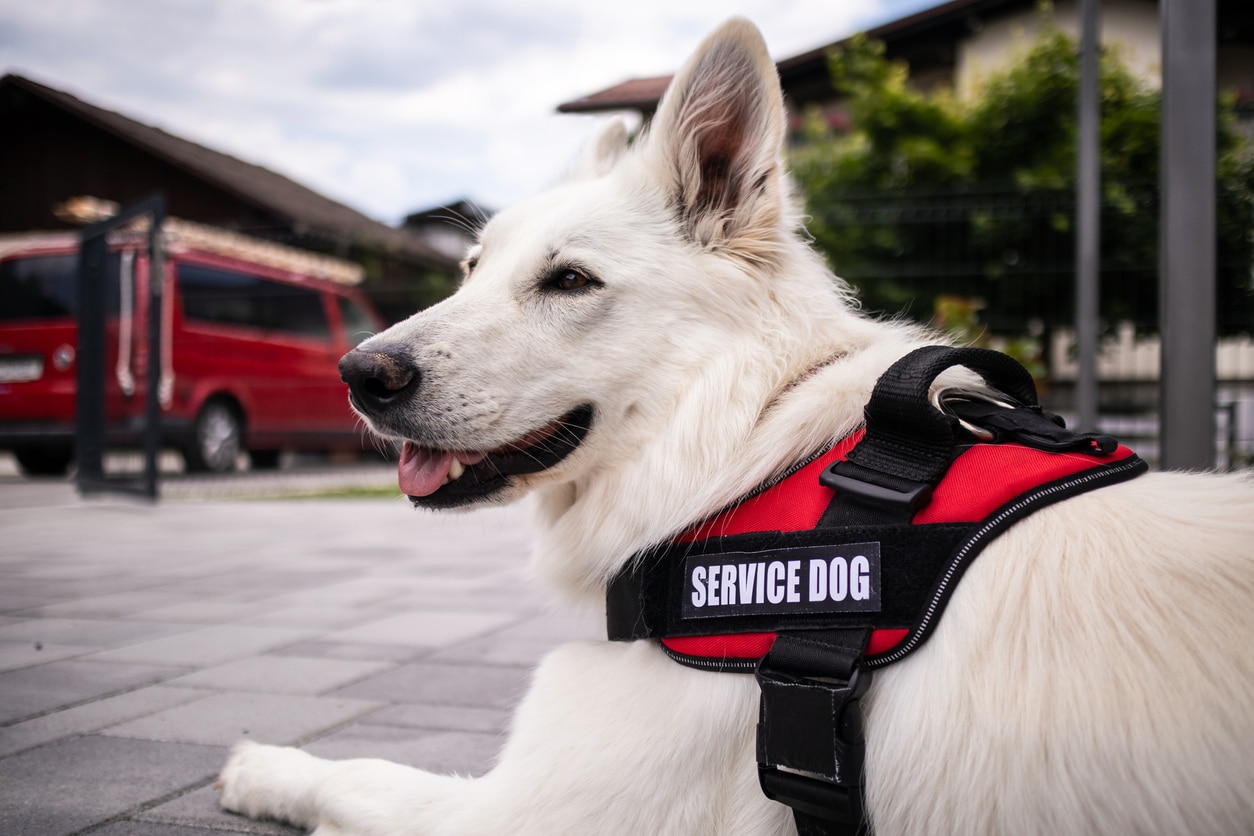If you’re aging or experiencing hearing loss, you may have considered hearing aids or other assistive listening devices but may not have heard of or considered a hearing dog. Based on standard hearing examinations, one in eight people over the age of 12 experience hearing loss in both ears and stand to benefit from some form of hearing loss treatment. Depending on how hearing loss affects your everyday life, it could be beneficial to learn more about how a hearing dog can aid in your hearing loss journey, even if you already have hearing aids.
What Is a Hearing Dog?

You’ve likely seen service dogs helping their handlers in public. Service dogs are trained to assist their owners with specific health issues. Much the same, a hearing dog is a type of service animal. Hearing dogs are usually small to medium in size and can be a purebred or mixed breed. Some organizations, such as Paws With A Cause, may rescue dogs with shelters and train them to assist individuals with disabilities.
For hearing dogs, trained instructors assist rescue dogs with completing a sound training program to be able to serve people with hearing loss. Like with other service animals, hearing dogs can wear a specific leash and harness to signify they are service animals and can be taken with their owner wherever they go.
Hearing dogs can be trained to assist with the following:
- Physically alerting a person in the event of an emergency. This could be helpful when a person with hearing loss cannot hear an alarm and doesn’t have a visible emergency alarm installed.
- Responding to commands with sign language, if trained to do so and if in a situation where it is necessary
- Leading owners to sources of sounds
A service dog for hearing loss can help provide added safety and security in public settings or at home.
Why Should I Consider One?
If you’re considering a hearing dog, it’s a great step because you’ve likely acknowledged your hearing loss and are working toward managing it. Considering a hearing dog should happen in partnership with your hearing specialist as an added aspect toward addressing hearing loss. In conjunction with hearing aids, having a service dog for hearing loss can have a positive impact in the following ways:
- You’ll feel more confident in your response to sounds in public, like passing cyclists while on walks at Grant Park.
- You’ll be more aware when participating in social engagements.
- You’ll remain physically active as your dog will need the same physical exercise any dog deserves.
- You’ll have the joy of a new companion who is always by your side.
- The dog can provide an added layer of security for sounds you may miss.
To learn more about hearing dogs or to find an organization that serves your area, visit assistancedogsinternational.org or speak with your hearing specialist.
Obtaining a service dog for hearing loss is just a step in a thorough approach to managing hearing loss. You should still work to preserve your remaining hearing and monitor its status via regular hearing tests.
To schedule a hearing test or to take the first steps in managing your hearing loss, contact Advanced Hearing to schedule an appointment.


